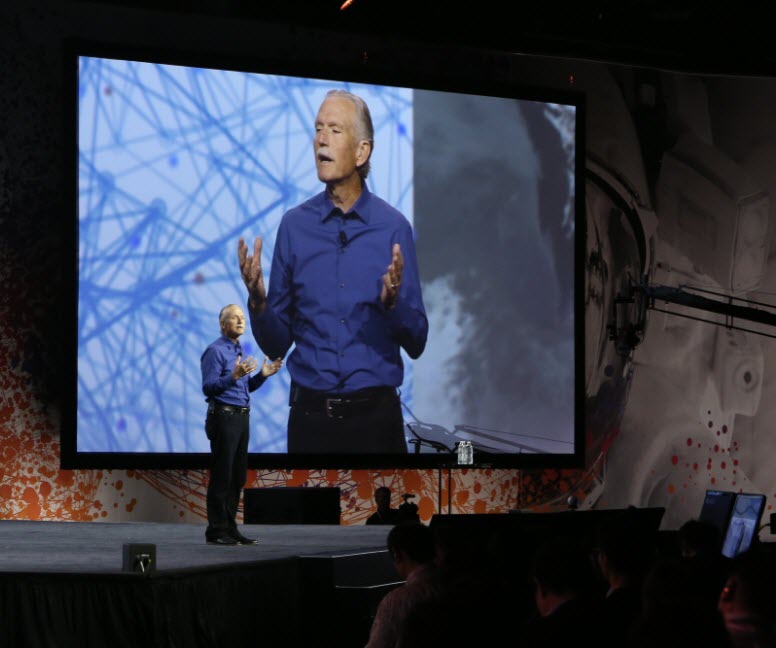 BIG DATA
BIG DATA
 BIG DATA
BIG DATA
 BIG DATA
BIG DATA
Teradata Corp., the company that helped to invent big data, is continuing to struggle to come to terms with big data’s success.
The data warehousing vendor today reported a steep drop in revenue, to $513 million in the second quarter, down 9 percent from adjusted revenues of $564 million a year ago and 14 percent from total revenues before a divestiture.
The results slightly missed analyst estimates. Earnings per share of 22 cents were in line with analyst estimates but far off the 71 cents per share the company reported a year earlier. Sales of product and cloud services plunged 32 percent, although services revenues held steady, staving off what could have been a much worse report.
The company took a particularly big hit in the Americas region, where quarterly revenue dropped 17 percent to $271 million. International revenues actually improved slightly.
Teradata sweetened the news by issuing somewhat improved expectations for the year. It said 2017 revenues look to be down between 5 and 7 percent from last year after adjusting for the divestiture. Previously, it had said sales could be down as much as 10 percent. “Teradata expects its fourth quarter results to be much stronger than what is expected for the third quarter, even after being seasonally adjusted,” the company said in a statement.
Investors liked that, bidding up Teradata shares 9 percent in early trading.
There are indications the vendor is turning the corner from an exclusive reliance on license sales to a more balanced annuity model. Teradata said it’s seeing “good momentum” in its transition to a more subscription-based business. Annual recurring revenue continues to increase, the company said, without citing specifics.
The new subscription offerings are intended to “provide customers with greater choice and make it easier for them to buy and to grow with Teradata,” Vic Lund, president and chief executive (pictured), said in a statement.
Teradata has been hit harder than most technology firms by the surging popularity of big data. Suppliers of the open-source big data processing framework Hadoop often use price-per-terabyte cost comparisons to Teradata data warehouses to illustrate their order-of-magnitude cost advantages, but most experts agree that it’s an apples-to-oranges comparison. Hadoop is tuned for managing large pools of unstructured data, but warehouses still excel at processing structured records. Research has consistently shown that information technology organizations aren’t abandoning their warehouses for Hadoop, although they prefer to house new workloads there.
Teradata long ago gave up the battle against low-cost open-source platforms and has welcomed them instead. In a trip report last year, Wikibon analyst George Gilbert noted that Teradata is stressing analytics over warehousing, and is working to make its platform work harmoniously with other big data tools. “Teradata displayed a surprising embrace of the new world of big data,” Gilbert wrote. Wikibon is a sister company of SiliconANGLE.
Pivoting the business requires going through all the pain that other legacy giants have endured, including reduced reliance on large contracts, short-term revenue declines and cultural disruption. Gilbert, for one, thinks the company is up to the challenge.
Teradata “will increasingly face metered cloud pricing that’s further pressured by open source alternatives,” he wrote. “But it’s clear from the analyst event that Teradata now understands that’s a transition it has to make.”
THANK YOU